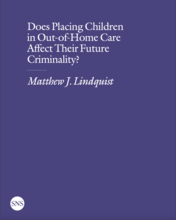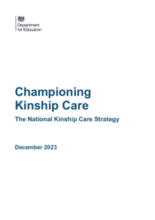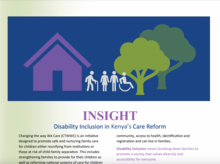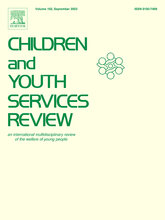Displaying 451 - 460 of 14342
This report provides new evidence about entry routes to care, pathways through care, and placement outcomes for the very youngest children in the care system in Wales. It is the seventh in the Born into Care series.
This report draws 14 lessons from academic research on the effects of out-of-home care on subsequent criminality. Most of the studies references in this review of based in Sweden.
This is the first-ever National Kinship Care Strategy to be published in the UK. The strategy establishes “the foundations for a future, transformed kinship care system in England.”
Native American mothers whose children were separated from them – either through child removal for assimilation into residential boarding schools or through coerced adoption – experience the kind of grief no parent should ever feel. Yet theirs is a loss that is ongoing, with no sense of meaning or closure.
Disability inclusion means breaking down barriers to promote a society that values diversity and accessibility for everyone. In 2023, Changing the Way We Care Kenya included a disability inclusion reflection learning exercise aimed at collecting views and feedback, and documenting how the initiative had impacted on lives of caregivers and children with disabilities, and how disability issues were be included in the care reform agenda.
The process of changing the model of service provided by an organization from one that is residential care service focused to a non-residentia
Family strengthening is comprehensive strengths-based approaches, supports and services to families at risk of separation or those receiving
Case management is used with both families at risk of separation and those where children have already separated and are in the process of being reintegrated, including biological family or placed into an alternative family (e.g., foster or kinship). The end goal of case management is that children are safe and nurtured within a family that is able to care for them, and access needed services that address risks and increase resilience.
This insight from Changing the Way We Care provides an overview of the household economic strengthening (HES) activities that were part of a holistic family strengthening approach in Kenya.
This analysis considers foster care regulations in three jurisdictions in Finland, New Zealand, and Wisconsin, USA, and the effects of policy decisions on eligibility for relative caregivers and placement options for children in out-of-home care.






